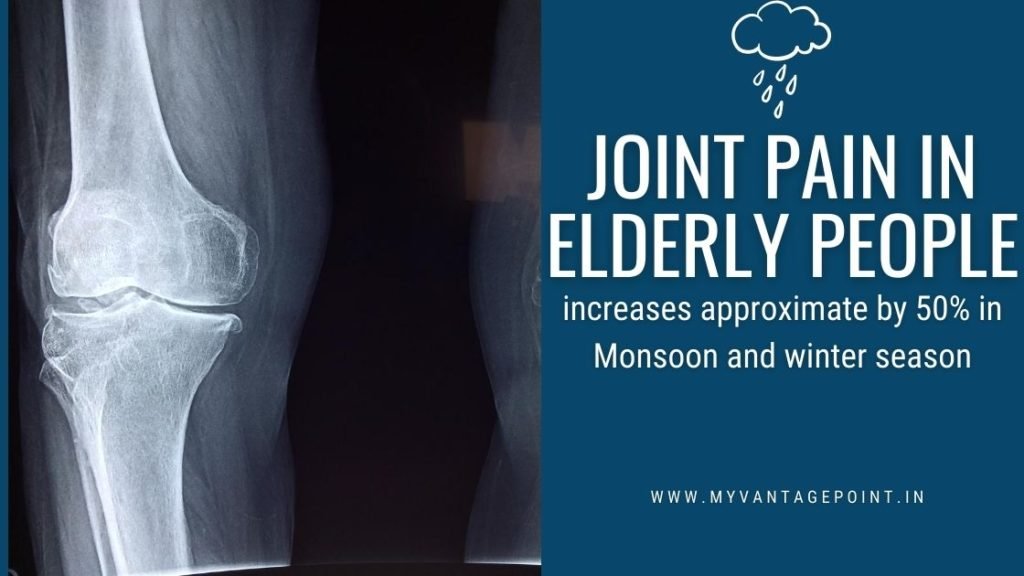Joint Pain In Elderly People increases approximate by 50% in Monsoon and winter season
~ Doctors urge people not to neglect it, and opt for a timely consultation ~
~ Everyone’s body reacts to fluctuating barometric pressure, but people with arthritis and those with chronic pain are more vulnerable to feeling discomfort~

Though the monsoon brings that respite from the scorching heat, it can also turn into a nightmare for elderly people as it may aggravate their joint pain.
These could be pains in the joints, increased stiffness, and a feeling of pain in old injuries. There has been a rise in number of patients with such complaints.
Avoid unnecessary strain on your joints during daily activities, apply the heating pads to painful areas, and maintain a healthy weight to decrease stress on your joints, especially your knees.
Change in weather and temperature causes stiffness in the muscles and the lining of the joints also called joint capsules. When the joint capsules stiffen, one experiences discomfort and pain in the various joints like the knee, hips, and even fingers at times. People above 60 years are more prone to it.
“Half of the consulations we see are of Joint pains specialy in elderly patients and it increased by 50 percent as monsoon begins. There is no one explanation for why dropping temperatures affect your joints. One theory relates to drops in barometric pressure, which causes tendons, muscles, and the surrounding tissues to expand. Because of the confined space within the body, this can cause pain, especially in joints affected by arthritis. Everyone’s body reacts to fluctuating barometric pressure, but people with arthritis and those with chronic pain are more vulnerable to feeling discomfort. If you experience any unusual or new symptoms with your joints such as persistent swelling, redness, difficulty putting pressure on, or using, the joint then it’s a good idea to consult your orthopedician. If you have consistent or severe pain that becomes disabling, seek medical care right away,”
Dr Mayank Pathak
said Dr Mayank Pathak, Orthopedic surgeon, Apollo clinic Pune.
There are several steps you can take to be more comfortable when the weather turns cold.
“Stay warm, build up muscle and bone strength through exercise. This reduces pressure on your joints, so they are less prone to injury. Maintain a healthy weight to decrease stress on your joints, especially your knees. Avoid unnecessary strain on your joints during daily activities. Apply heating pads to painful areas. The heat helps relax your muscles. Get up, walk around, and be active indoors and outdoors. Stretch before going outside to loosen stiff joints. Staying active in the winter keeps your muscles and joints healthy. Get a good night’s sleep, eat a healthy diet and keep an optimistic approach,” concluded Dr Pathak.


















